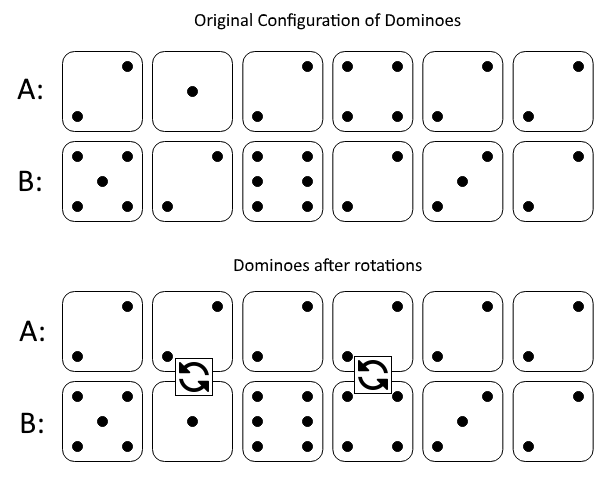Problem
We have an array A of integers, and an array queries of queries.
For the i-th query val = queries[i][0], index = queries[i][1], we add val to A[index]. Then, the answer to the i-th query is the sum of the even values of A.
(Here, the given index = queries[i][1] is a 0-based index, and each query permanently modifies the array A.)
Return the answer to all queries. Your answer array should have answer[i] as the answer to the i-th query.
Example 1:
Input: A = [1,2,3,4], queries = [[1,0],[-3,1],[-4,0],[2,3]]
Output: [8,6,2,4]
Explanation:
At the beginning, the array is [1,2,3,4].
After adding 1 to A[0], the array is [2,2,3,4], and the sum of even values is 2 + 2 + 4 = 8.
After adding -3 to A[1], the array is [2,-1,3,4], and the sum of even values is 2 + 4 = 6.
After adding -4 to A[0], the array is [-2,-1,3,4], and the sum of even values is -2 + 4 = 2.
After adding 2 to A[3], the array is [-2,-1,3,6], and the sum of even values is -2 + 6 = 4.
Note:
1 <= A.length <= 10000-10000 <= A[i] <= 100001 <= queries.length <= 10000-10000 <= queries[i][0] <= 100000 <= queries[i][1] < A.length
Solution: Simulation
Time complexity: O(n + |Q|)
Space complexity: O(n)
C++
1 2 3 4 5 6 7 8 9 10 11 12 13 14 15 16 17 18 19 20 21 |
// Author: Huahua, Running time: 100 ms / 6.5 MB class Solution { public: vector<int> sumEvenAfterQueries(vector<int>& A, vector<vector<int>>& queries) { int sum = 0; for (int i = 0; i < A.size(); ++i) if (A[i] % 2 == 0) sum += A[i]; vector<int> ans; for (const auto& query : queries) { int& a = A[query[1]]; if (a % 2 == 0) sum -= a; a += query[0]; if (a % 2 == 0) sum += a; ans.push_back(sum); } return ans; } }; |
Python3
|
|
# Author: Huahua, running time: 188 ms / 16.4MB class Solution: def sumEvenAfterQueries(self, A: 'List[int]', queries: 'List[List[int]]') -> 'List[int]': s = sum(x for x in A if x % 2 == 0) ans = [] for val, index in queries: if A[index] % 2 == 0: s -= A[index] A[index] += val if A[index] % 2 == 0: s += A[index] ans.append(s) return ans |
